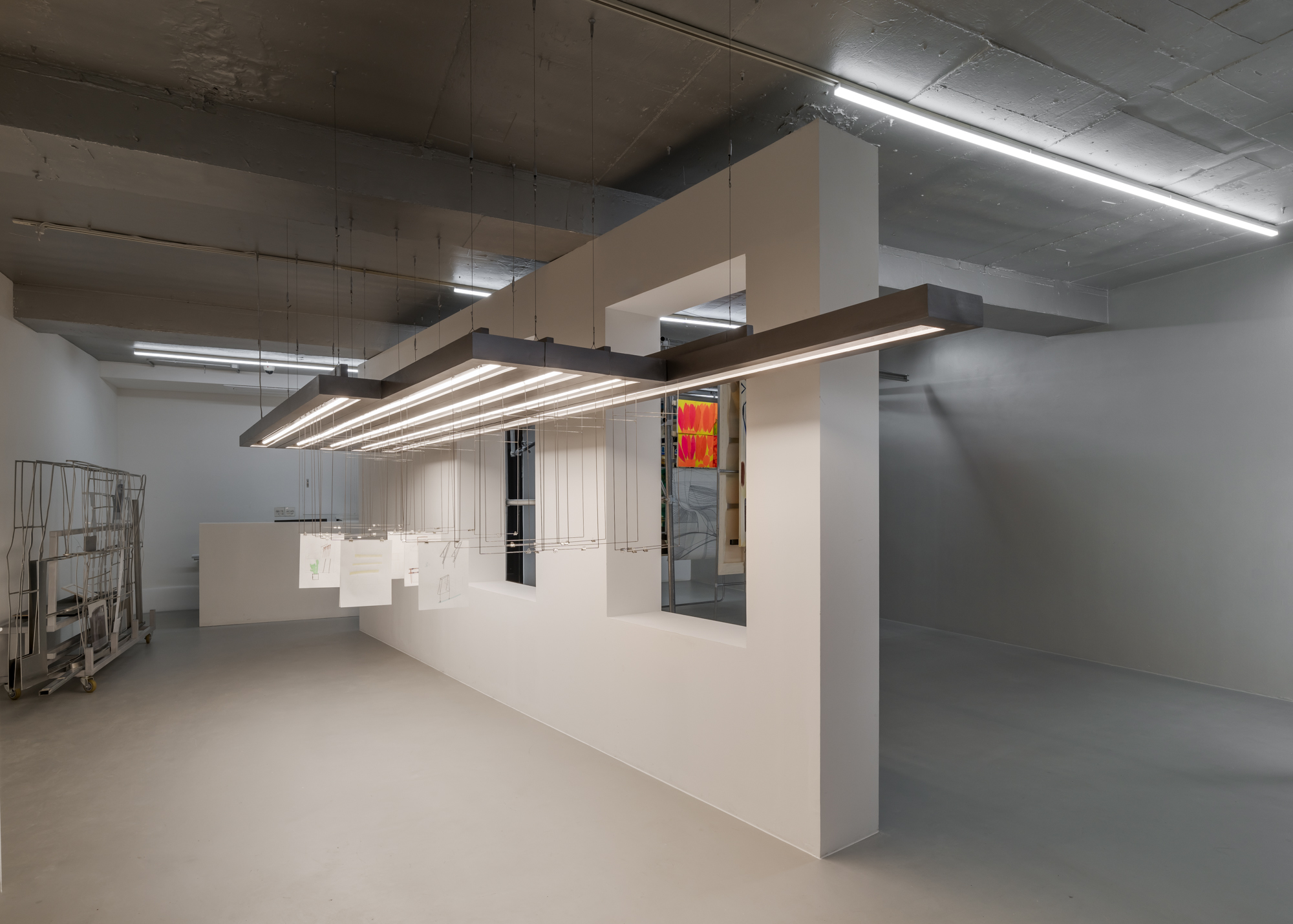Of Hundred Carts and On at Barakat Contemporary, Seoul asks what happens to the work after the exhibition
Spread across the ground and basement floors of the gallery is what has become one of Jewyo Rhii’s signature storage facility-cum-laboratory installations. The work follows in the footsteps of Love Your Depot (2019), an installation (first shown at MMCA Seoul as part of the Korean Artist Prize) that has had several iterations over the years. It pursues a line of enquiry that goes something like this: ‘What happens to the work after the exhibition? Or to works that have nowhere to go?’ Both her own (the original had 20 years’ worth of works in crates next to it) and those of her colleagues and contemporaries. (There are echoes, of course, of fellow South Korean Haegue Yang’s Storage Piece, 2003.) As in her earlier work, here Rhii takes what might normally be a dead, purely archival system, containing shelving units and storage racks, filled with paintings, sculptures, lightworks, videos and texts, and activates it as something approaching a dynamic, living entity.

On one shelf is a collection of white footballs with the brand names blacked out; on a lower shelf, what look like lumpen, experimental plaster sculptures. All of it (titled Turn Depot, 2021–23) on a metal shelving frame on wheels that are locked into a circular track, making it look more like something clockwork or a record of the passing of time: functional, mobile but stuck. There are drawings clipped to wire-frame hangers (Drawing Rack, 2019–23), Flavinesque but slightly ramshackle lit white neon tubes. What looks like a candelabra cactus standing on a palette as if ready to be shipped, covered in a blanket either to keep the dust off or to make it look like a Halloween ghost. And much, much more. Each work seems on the verge of telling a story, of conversing with those around it, but is strangely muted by the cacophonous clutter. Other works, however, tell a story more directly.
A large text displayed in one of the racks is titled ‘Dear My Love – anti-capitalist’. What follows is both a love letter and a potential commentary on the works that surround it. ‘How have you been?… The second winter after our parting has passed… I’ve thought about you a lot, and I bet that you are just the same.’ And yet, one of the messages of this work and the conversations and dialogues it elicits, both between materials and audiences and within the context of the materials themselves, is that nothing ever remains the same.
Of Hundred Carts and On at Barakat Contemporary, Seoul, 31 August – 27 October
